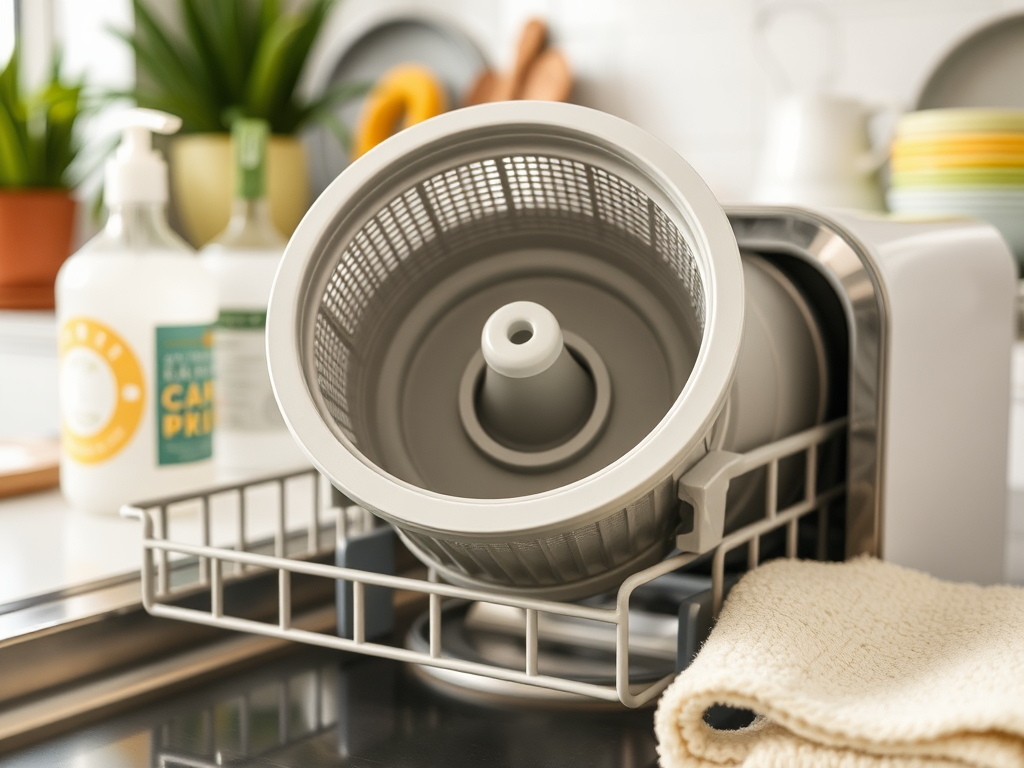The Best Tools for Cleaning Your Dishwasher Filter at Home

Every homeowner knows the importance of a functioning dishwasher; however, many often overlook one critical element: the dishwasher filter. This small component plays a pivotal role in maintaining the appliance’s efficiency, ensuring that the dishes leave sparkling clean after every wash. The filter traps food particles and debris, protecting essential components of the dishwasher from clogs and damage. Unfortunately, a neglected filter can yield unsatisfactory results, leaving dirt residue behind rather than eliminating it. This article aims to guide you through the best tools and methods to clean your dishwasher filter at home effectively. Embrace this simple maintenance routine, and you’ll enjoy cleaner dishes and a well-functioning appliance for years to come.
Understanding the Importance of a Clean Dishwasher Filter

A clean dishwasher filter is vital for ensuring that your machine operates at peak efficiency. When food particles and grime accumulate, the appliance struggles to clean effectively. This not only affects the cleanliness of your dishes but can also lead to unpleasant odors that may permeate your kitchen. More importantly, neglecting the filter can ultimately result in irreversible damage, costing you hefty repair bills. Taking the time to regularly check and clean your dishwasher filter can save you from these headaches. Thus, establishing a task-oriented habit around this upkeep will enhance both the functionality of your dishwasher and the enjoyment of your home cooking.
Common Types of Dishwasher Filters

Dishwashers predominantly use two types of filters: manual and self-cleaning. Understanding the differences can help you determine your maintenance needs effectively. Manual filters require regular cleaning by the owner and need more attention; these filters often become clogged faster, especially in homes with heavy dishwashing demands. On the flip side, self-cleaning filters keep debris to a minimum by rinsing themselves during each wash cycle. Each type of filter has its own set of advantages and disadvantages, and knowing which you have can determine the cleaning routine you’ll follow. Make sure to consult your appliance’s manual to understand the specifications and care needs.
Manual Filters
Manual filters are relatively straightforward to maintain, but they do demand frequent attention. As their name suggests, users must take out these filters and clean them regularly, which can sometimes be a messy endeavor. Common materials in these filters make them effective but may become easily clogged with grease and food. Depending on your usage, these filters may need evaluation once a month or even more frequently. The trade-off is that they can usually provide cleaner dishes if maintained properly. If you’re diligent, these filters can greatly improve the dishwasher’s output and longevity, truly making it a worthwhile effort.
Self-Cleaning Filters
Self-cleaning filters offer convenience, as they largely take care of themselves. Relying on advanced technology, these filters rinse away food remnants during the wash cycles, reducing the need for frequent manual handling. However, they still may require occasional inspection and cleaning to ensure efficiency. Homeowners might find these filters beneficial, especially if their loading of dirty dishes can be sporadic. Because self-cleaning filters are designed to manage debris, they can also contribute to an overall cleaner environment in the dishwasher. Still, regular maintenance is critical, particularly as it relates to overall appliance performance.
Essential Tools for Cleaning Your Dishwasher Filter
To make the cleaning process straightforward and effective, having the right tools is essential. Here are some must-have items you should consider for this task:
- Soft-bristled brush
- Old toothbrush
- Dish soap and warm water
- White vinegar
- Microfiber cloth
These tools each serve specific functions that contribute to a thorough cleaning. The soft-bristled brush is perfect for getting into the crevices without damaging the filter material. An old toothbrush can reach those hard spots that may otherwise be neglected. Using a combination of dish soap and warm water helps loosen dirt, while white vinegar can tackle any stubborn grease or mineral deposits. Finally, a microfiber cloth allows you to dry off the filter without leaving lint behind, ensuring your filter is ready for its next wash cycle. Effective cleaning starts with using the right tools and techniques.
| Tool | Function |
|---|---|
| Soft-Bristled Brush | Remove stubborn debris without scratching |
| Toothbrush | Clean hard-to-reach areas |
| Dish Soap & Warm Water | Loosen dirt and grime |
| White Vinegar | Remove grease and mineral deposits |
| Microfiber Cloth | Dry and polish the filter |
Step-by-Step Guide to Cleaning Your Dishwasher Filter
Cleaning your dishwasher filter doesn’t have to be a daunting task. Follow this simple step-by-step guide to maintain your appliances easily and effectively. Start by turning off your dishwasher to ensure safety; it’s always better to err on the side of caution. Once powered down, carefully remove the filter according to the manufacturer’s instructions — it’s usually a simple twist or pull. Soak the filter in warm soapy water for a few minutes to help loosen debris, giving it a good chance to clean well. After soaking, scrub the filter using the soft-bristled brush and an old toothbrush, focusing on areas that show signs of buildup or sticking dirt.
After thorough scrubbing, rinse the filter under warm water to wash away soap and residue. Once rinsed, utilize a microfiber cloth to dry off the filter completely before reinstalling it back into the dishwasher. Make this cleaning session a part of your regular maintenance schedule, aiming for every month or two, depending on the frequency of use. A clean filter means cleaner dishes, and the investment in time will pay off in the efficiency of your dishwasher.
Conclusion
In conclusion, a clean dishwasher filter is more than just a maintenance task; it is a significant aspect of overall kitchen hygiene and appliance efficiency. By employing the right tools and following a straightforward guide, you can easily keep your dishwasher performing at its best. Avoid the pitfalls of neglect, and instead, embrace a routine cleaning schedule that promises cleaner dishes and an extended life for your appliance. Make this simple yet effective practice a part of your household maintenance, and you will surely reap the benefits.
Frequently Asked Questions
- How often should I clean my dishwasher filter? It is recommended to clean your dishwasher filter every 1-3 months, depending on usage.
- Can I run my dishwasher without a filter? No, running a dishwasher without a filter can lead to clogs and permanent damage to the appliance.
- Is it necessary to use specialized cleaners? No, most household products like dish soap and vinegar are effective for filter cleaning.
- What happens if I don’t clean the filter? Failing to clean the filter can result in poor cleaning performance and unpleasant odors from the dishwasher.
- Are dishwasher filters interchangeable? No, filters are often specific to the dishwasher model. Always check the manual for compatible replacement filters.


